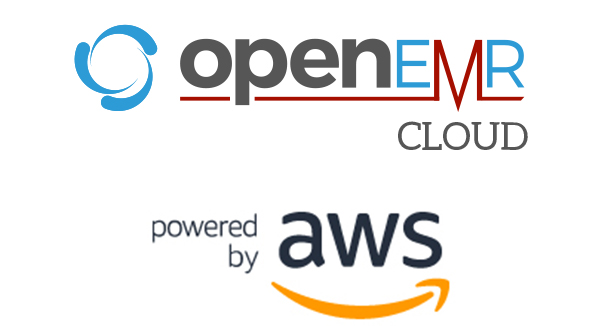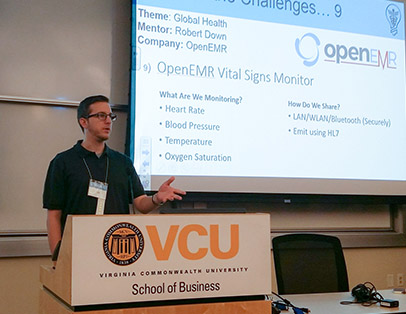Noteworthy Numbers
1,061
Git Commits
54
Contributors
683
Pull Requests
25,000*
Cups of Coffee
Mastering Meaningful Use
In February of 2017 OpenEMR achieved full Meaningful Use 2 certification. This was a large step to ensuring the long-term viability of OpenEMR for use inside the United States. Of course, such stringent specifications only aid to improve our product globally, and we have seen positive outcomes both within the U.S. as well as internationally after acheiving this goal.
Dr. Brady Miller, one of the project administrators for OpenEMR estimated that the community spent over $200,000 on the certification process, including testing with an estimated 80-85 work weeks of time spent on the process.

Deploy on Docker

We know talking about images and containers can be a bit dry, but throughout 2017 the community spent a lot of time working and discussing "dockerizing" OpenEMR - this process marks a significant departure from traditional installation processes and offers users a significantly simpler installation solution. This lowers the barrier to getting OpenEMR up and running for "non-tech" users.
Ready to give the OpenEMR Docker a go? Head over to https://hub.docker.com/r/openemr/openemr/ for details, or just run$ docker pull openemr/openemr
OpenEMR Cloud on AWS Marketplace
This year, OpenEMR joined with industry-leading Amazon Web Services to implement and deliver OpenEMR Cloud, a cloud service version of OpenEMR available to healthcare provider practices and institutions throughout the world. In a few simple steps, healthcare providers can leverage the benefits of OpenEMR and AWS by deploying OpenEMR Cloud Full Stack.
Cloud technologies have become a staple in technology and business over the past decade, and the healthcare industry is no exception. As a web platform, OpenEMR makes a seamless transition to the cloud, enabling many benefits including: cutting-edge information security, zero on-site hardware and software, easy deployment, and robust backup and recovery solutions.

WONCA SAR Presentation
Matthew Vita, a software developer and project administrator for OpenEMR and Dr. Andre Millet, a physician and medical officer for OpenEMR were pleased to present “Improving Outpatient and Inpatient Care with the OpenEMR Platform” at WONCA South Asia Region 2017.
This Kathmandu, Nepal-based conference was primarily focused on General Practitioners took place on the 25th and 26th of November. Mr. Vita and Dr. Millet’s presentation was given during the oral lectures section. Highlights include an overview of the volunteer approach to developing an EMR system, current outpatient features and their clinical benefits, as well as development plans to introduce more clinical features including inpatient support.
HealthHacks at VCU
OpenEMR was proud to be a contributing sponsor of the 2017 HealthHacks at VCU a 24-hour event at Virginia Commonwealth University involving engineering, medical, and computer science students coming together to problem solve and innovate on current unmet medical needs. OpenEMR was both a sponsor as well as a mentor, sending Robert Down, a project administrator, to the event.
The decision to sponsor HealthHacks at VCU fell squarely in line with our mission to provide high-quality medical solutions to the world. OpenEMR is already a long-term, viable solution for low-resource clinics, and our hope is to complement our software solutions with the innovations from this event. It is our hope that we can continue to develop tools that meet the needs of low-resource areas and developing countries to strengthen the healthcare industry throughout the world.

This is just a brief overview of the great things that happened around
OpenEMR in 2017 - there's no way we could possibly
showcase everything that happened in our community - it'd take an entire
year! OpenEMR continues to be a successful project because of our strong
community and passionate volunteers who give countless hours of their time
to a cause that hopes to improve global health care. To those volunteers,
we say thank you for everything. Here's to an even better 2018!
The OpenEMR Project Admins
*Coffee consumption calculation is not an accurate or scientific representation of actual coffee consumed by anybody involved with the OpenEMR project. It is instead a rough estimate which may or may not be... but is probably most-definitely not very accurate.